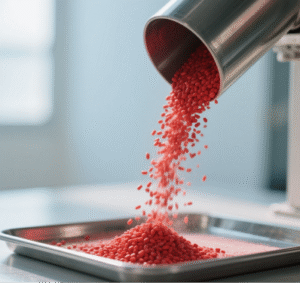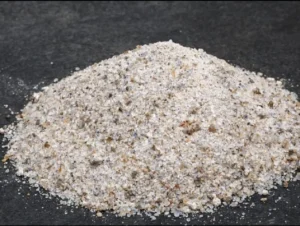Have you ever heard of “carbon fertilizer” being hailed as a miracle product for crops? Sellers promise that it’s high-tech, increases yields, and solves all your farming problems. But is it too good to be true? Let’s explore the science behind this controversial product and reveal the truth to help you make smarter choices for your farm.
1. Why Don’t Plants Need “Carbon Fertilizer”?
Plants need 16 essential nutrients to grow. Some come from the air and water, like carbon, oxygen, and hydrogen, while others come from the soil, such as nitrogen, phosphorus, and potassium. Here’s the key point: Plants get carbon from CO₂ in the air through photosynthesis. They don’t absorb carbon from the soil. Just as you breathe in oxygen from the air, plants “breathe” in CO₂. No scientific study supports the idea that adding “carbon fertilizer” to the soil helps plants grow better. It’s like trying to sell you bottled air—unnecessary!Essential Plant Nutrients: Does Carbon Need to Be Added?
Plants require 16 essential elements for growth, categorized as:
| Nutrient Type | Elements | Source | Need Fertilizer? |
| Macro (Primary) | Carbon (C), Hydrogen (H), Oxygen (O) | Air (CO₂) & Water (H₂O) | ❌ No (naturally abundant) |
| Macro (Secondary) | Nitrogen (N), Phosphorus (P), Potassium (K) | Soil | ✅ Yes (commonly deficient) |
| Secondary | Calcium (Ca), Magnesium (Mg), Sulfur (S) | Soil | ⚠ Sometimes (depends on crop & soil) |
| Micro | Iron (Fe), Boron (B), Zinc (Zn), etc. | Soil | ✅ Yes (small amounts needed) |
2. What’s Really in “Carbon Fertilizer”?
Despite the fancy marketing, “carbon fertilizer” is not officially recognized by global farming rules, including those in China. When you open the package, you’ll find:
- Humic acid or fulvic acid: These natural substances are made from decomposed plants and animals over millions of years. They’re commonly used in organic fertilizers to improve soil structure and help plants absorb other nutrients.
- No magic ingredient: What sellers call “carbon fertilizer” is often just regular organic matter that has been repackaged and sold at a much higher price. The term “carbon” is a marketing trick intended to make the product seem advanced and scientific.
3. The Truth About Humic and Fulvic Acids
These acids are useful, but not as “carbon supplements.”:
- Humic acid helps soil hold water better and prevents nutrients from washing away.
- Fulvic acid acts as a carrier, transporting micronutrients such as iron and zinc to plant roots.
Remember: These acids contain carbon, but plants can’t use this carbon as food. Plants only get carbon from CO₂ during photosynthesis. Therefore, any claim that “carbon fertilizer” feeds plants carbon is false!
- How to Spot a Carbon Fertilizer Scam
Watch out for these red flags:
- Overpriced: If it costs significantly more than regular organic fertilizers, beware.
- Vague claims: Be wary of vague claims like “patented carbon technology” or “miracle growth” without clear explanations.
- No official label: Legitimate fertilizers display NPK values (nitrogen, phosphorus, and potassium) and a registration number. “Carbon fertilizers” often lack this information.
5. What Should You Use Instead?
Focus on proven methods:
- NPK fertilizers: These provide the main nutrients that plants need.
- Humic/fulvic acid products: Use these as soil conditioners, not “carbon fertilizers.”
- Compost and manure: These add organic matter to enrich your soil naturally.
Key takeaways for farmers:
- Don’t waste money on “carbon fertilizer.” It’s a marketing scam.
- Test your soil. Identify which nutrients your crops lack.
- Check labels: Look for NPK values and registration numbers.
- Report scams. If you see fraudulent products, alert your local agricultural authorities.
In summary, science trumps hype!
Carbon fertilizers are a clever trick used to sell ordinary organic fertilizers at inflated prices. Plants thrive on balanced nutrients (NPK), healthy soil, and CO₂ from the air, not expensive “carbon supplements.” Understanding the science behind plant growth helps you avoid costly scams and invest wisely in what truly benefits your crops.
Pro tip: Stay curious, not fooled! Ask questions, check labels, and trust proven science over exaggerated claims. Happy farming! 🌾💡







